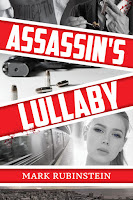Whether it’s The Godfather, Goodfellas, Casino, Scarface, Breaking Bad, The Sopranos, a Jack Reacher novel, or crime novels by Don Winslow, Nelson DeMille, Dennis Lehane, James Patterson, or other bestselling authors, the mafia will likely make an appearance.
It can be the old Italian mob or Russian Organized Crime, or the Irish or Albanian mafia or the emergence of a Colombian or Mexican cartel kingpin. It can involve the old Untouchables series, the Cagney, Bogart, and Robinson movies of the 30s and 40s, or the more contemporary mafia-thriller renderings. These stories live on in the popular imagination and no doubt, will continue to do so.
Mafia stories seem to have a timeless appeal whether they arise as a blockbuster movie, a nail-biting TV series, or a page-turning bestseller.
There may be many reasons for the enduring popularity of mafia stories whether told on the screen or page.
For one, the mafia may be seen as the realization of the American dream. Against many odds, the mafia Don is depicted as a self-made man who, despite the odds being stacked against him, climbs the economic ladder to success. Though mafiosi are often portrayed as flawed, greedy, and ruthless, they’re pitted against the well-ordered establishment and are portrayed as outsiders who manage to beat the system. Thus, the fictional mafiosi are idealized anti-heroes who succeed in a cruelly hostile world.
We shouldn’t forget that mafiosi are portrayed mythically as “men of honor” bound by a code of intense loyalty and enduring family ties. There’s the well-worn lore that they’re men of passion in an age when such qualities are viewed as rare to non-existent. Of course, this is the fictional mafia while in reality, the mafia (of any ethnic persuasion) corrupts, degrades, and kills. The fictional portrayals romanticize these criminals, often making them heroic figures or anti-heroes. But we all must have our illusions and mafia stories provide us with plenty of illusory lore, especially when it comes to honor, tradition, and family loyalties.
And let’s not overlook the reality that people have always had a morbid fascination with crime, violence, and sex, (whether presented in a series like The Sopranos or Game of Thrones) which are richly depicted in countless mafia tales.
There’s the vicarious nature—and the fantasy—of the forbidden and exciting criminal life depicted in stories involving the dark side of human nature. It’s a darkness we find compellingly attractive. This is especially true for sex, vengeance, and violence. These hidden (largely unacceptable) urges are often at the deeply buried core of our beings and run rampant in virtually all mafia stories.
How else can we explain the popularity, not only of mafia tales, but of boxing, professional wrestling, and mixed martial arts, otherwise known as cage fighting? In essence, mafia tales appeal to the primal urges that lie deeply buried within us. And whether reading a crime novel, watching a mafia television series, or sitting in a movie theater, we can get our vicarious fix of these forbidden fruits.
***
Mark Rubinstein is the author of Assassin's Lullaby. Rubinstein, a novelist, physician, and psychiatrist, has written eight nonfiction books, including The Storytellers. He has also written eight novels and novellas, including the Mad Dog trilogy and The Lovers’ Tango. He lives in Wilton, Connecticut. For more information visit http://www.markrubinstein-author.com



No comments:
Post a Comment